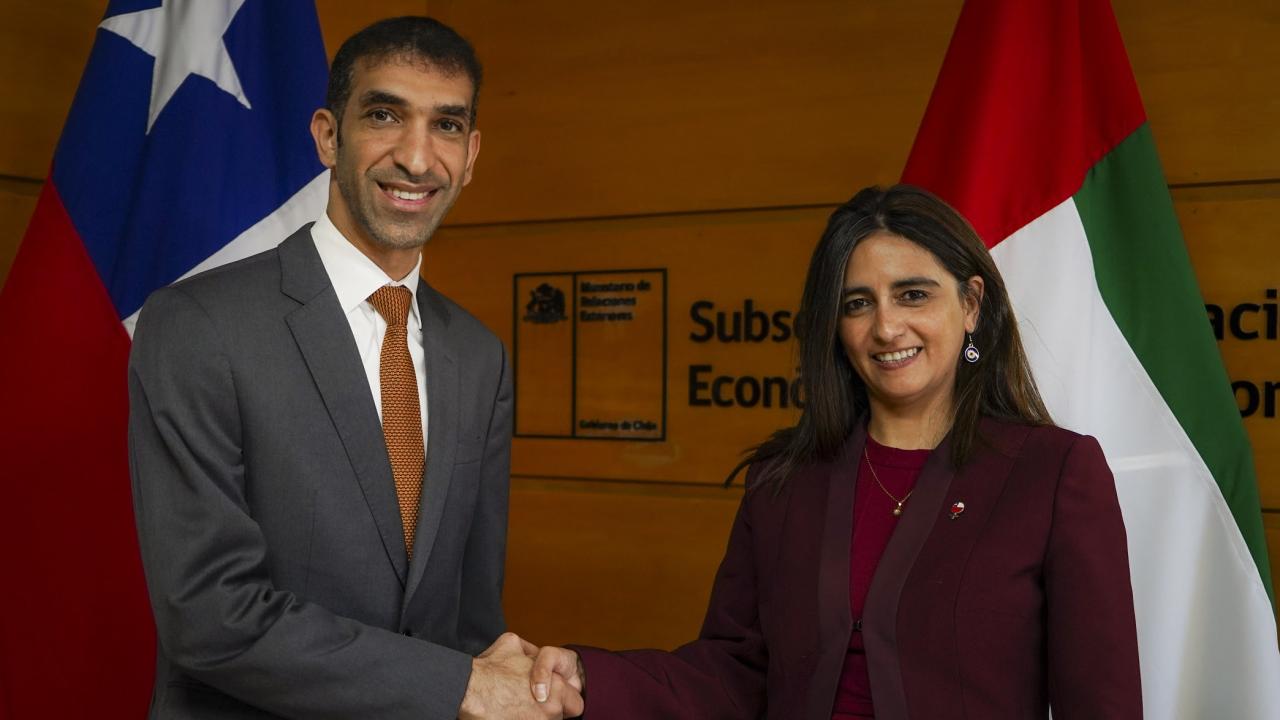
The Comprehensive Economic Association (CEPA) is the first agreement that Chile signs with the Middle East, which represents a strategic opportunity to insert itself in that region.
This morning and after four rounds of work, the negotiations of the Comprehensive Economic Partnership Agreement (CEPA) between Chile and the United Arab Emirates (UAE) ended. The closing ceremony was led by the Undersecretary of International Economic Relations of Chile, Claudia Sanhueza, and the Emirati Minister of Commerce, Thani bin Ahmed Al Zeyoudi.
Undersecretary Sanhueza noted that “this agreement marks an important milestone in our bilateral relations with the United Arab Emirates and lays the foundation for the expansion of trade, which will open new opportunities for our producers. Market diversification is essential for the Chilean economy and this agreement represents a significant step in that direction. In addition, it will promote the movement of investments between both countries, consolidating the commercial relationship between Chile and the UAE.”
He added that “it is essential to highlight that this agreement does not include any clause that hinders national industrialization policies. Chile positions itself as a reliable partner for foreign investment and reinforces its commitment to sustainable economic development.”
For his part, Minister Al Zeyoudi, who arrived in Santiago with a delegation from his country's Business Council, said he hoped that this agreement would allow for an increase in bilateral trade and highlighted that it is the first UAE agreement that includes matters on economic empowerment. Women's.
Undersecretary Sanhueza also pointed out that “this agreement is the first that Chile signs with the Middle East, which represents a strategic opportunity to insert ourselves in the region. The opening towards new commercial horizons will strengthen Chile's presence in a dynamic and growing market. Likewise, it is notable that this is the first agreement that the United Arab Emirates signs that includes a chapter regarding the economic empowerment of women. Which once again positions our country as one that allows promoting the participation of women in the economy and society.”
Both authorities signed a Joint Declaration on the closing of the negotiations, and indicated that they hope the signing of the CEPA can be completed, during the possible visit of President Gabriel Boric this year to the UAE.
“To further strengthen our ties, our President, Gabriel Boric, will visit the United Arab Emirates later this year, thus consolidating this important pact. This visit will be an opportunity to further deepen cooperation in various areas,” concluded the SUBREI authority.
Comprehensive Economic Partnership Agreement (CEPA)
The fourth and final round of negotiations was led by Chile's chief negotiators, Sebastián Gómez, general director of Bilateral Economic Affairs of the Undersecretary of International Economic Relations (SUBREI), and Juma Al Kait, Assistant Undersecretary of International Trade, of the Ministry of Emirates Economy.
This Agreement arises from the common interest of both countries in diversifying their trade and investments, especially in fields such as green energy, management of the consequences of the global climate and commercial infrastructure. And it takes into account new developments in international trade policy, through a chapter on Women's Economic Empowerment and global value chains.
For both nations, CEPA will improve mutual trade by allowing broad access to goods, services and government procurement. Market access will be reinforced by a chapter on economic cooperation that will include fields such as labor, competition and the environment.
Chile and the United Arab Emirates have had a growing flow of investment in recent years in various fields such as ports, real estate, public tenders, the chemical industry and agribusiness.









